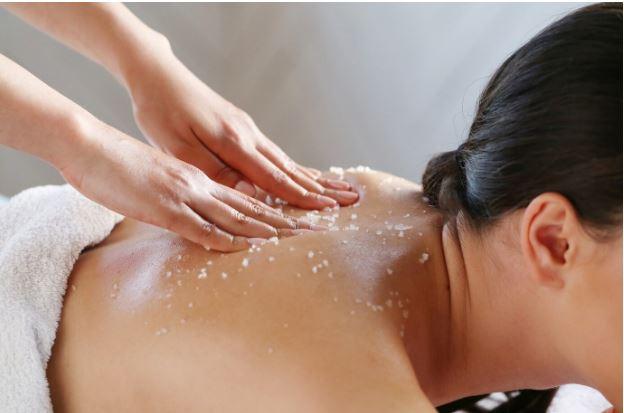In the vibrant heart of London, this city known for its endless pace and vibrant energy, finding a moment of pure connection and relaxation seems almost like a luxury. The concept of London mutual massage steps into the picture in order to offer a different sensory journey that would, apart from relaxation of the physical body, create harmony emotionally. Let's delve into this transformational experience and find out why it has become the new favorite among Londoners in search of meaningful respite.
What Is Mutual Massage?
Mutual massage is the therapeutic process in which two people give and receive massages alternately. Unlike conventional massage therapies, mutual massage encourages interaction between the parties involved, emphasizing communication, trust, and shared relaxation. This idea aligns perfectly with London's cosmopolitan spirit and appeals to individuals looking for deeper human connections in their self-care processes.
Increasing Popularity of Mutual Massage in London
London, a melting pot of cultures and lifestyles, has always been at the forefront of wellness trends. Mutual massage services have gained traction for their ability to combine relaxation with intimacy, creating an experience that's both personal and rejuvenating.
Reasons Behind Its Popularity:
Stress Management: In a city where over 40% of adults report experiencing stress regularly, mutual massage offers a calming escape.
Enhanced Communication: Partners and friends use mutual massage to strengthen their bonds, fostering deeper emotional connections.
Holistic Healing: Beyond physical relaxation, this practice promotes emotional well-being by encouraging mindfulness and presence.
The Art of Mutual Massage: How It Works
Step 1: Setting the Mood
Creating a tranquil environment is key. Soft lighting, soothing music, and aromatic oils can enhance the sensory experience.
Tip: Most of the London mutual massage practitioners suggest lavender or chamomile oils as they have soothing effects.
Step 2: Open Communication
Both participants share their preferences and ensure comfort and clarity regarding pressure levels, techniques, and focus areas.
Step 3: Techniques and Practice
Common techniques include:
Swedish strokes: Long, flowing movements to relax muscles.
Kneading: Targeting deeper layers to relieve tension.
Circular motions: Stimulating blood flow and soothing sore areas.
Step 4: Alternating Roles
Taking turns enables each individual to enjoy to the fullest all the benefits that accrue in giving and receiving. Shared dynamics infuse the experience with intimacy.
A Personal Journey: Why I Chose Mutual Massage in London
I discovered mutual massage when things were really tough. A friend proposed that we give it a try as a means to relax. Reluctant at first, I quickly found out that this activity had a significant effect-not only on my body but also on our friendship.
Our first session was led by a trained therapist who taught us some introductory techniques. The interactive approach of the massage made me feel balanced and trusting. I left the session more relaxed than I had felt in months.
Expert's Opinion: Benefits of Shared Massage
Physical Health: Massage lowers muscle tension, improves circulation, and increases flexibility.
Mental Clarity: Research indicates that massage decreases cortisol levels, relieving stress and promoting clarity of mind.
Social Bonding: It's a practice that promotes connection and bonding. It's very suitable for couples or best friends.
According to London wellness expert Dr. Emily Clarke, "Mutual massage bridges the gap between therapy and relationship-building. It's as much about connection as it is about relaxation."
Tips for Beginners
1. Kicking Off Simple
You need not be an expert at all to have mutual massage. Start with the simplest techniques and then go further and learn the more complicated techniques.
2. Use Quality Tools
Invest in high-quality oils, a comfortable massage table or mat, and soothing accessories like scented candles.
3. Stay Present
Mindfulness is key. Concentrate on the touch and rhythm, letting go of external distractions.
4. Seek Professional Guidance
If you’re unsure where to begin, many London mutual massage services offer workshops for beginners.
Current Trends in the London Mutual Massage Scene
London’s wellness culture continues to evolve, embracing innovations and inclusivity:
Virtual Workshops: Online classes teach techniques to those who prefer practicing at home.
Couples' Retreats: Many spas now offer packages specifically for mutual massage sessions.
Cultural Fusion: Practices like Thai or Ayurvedic techniques are being integrated, adding depth to the experience.
Addressing Concerns and Misconceptions
Some may fear trying mutual massage due to fears of inadequacy or discomfort. Remember that
It's Not About Perfection: The objective is to relax and bond, not to master.
Clear Boundaries Are Essential: Communication is open to make both parties feel comfortable.
Professional Guidance Is Available: Many practitioners offer private sessions to teach techniques in a safe environment.
How to Find Quality Mutual Massage Services in London
1. Research Reputable Providers
Find licensed therapists and well-reviewed establishments. Personal referrals can also be valuable.
2. Prioritize Hygiene and Safety
Ensure the environment adheres to strict cleanliness standards, especially post-pandemic.
3. Ask About Customization
The best services tailor sessions to your preferences and needs.
4. Check for Workshops
Engaging in a workshop is a great way to learn and practice techniques in a guided setting.
Future Outlook: The Rise of Interactive Wellness Practices
As people look for more interactive and holistic well-being options, mutual massage has a bright future. This practice reflects a more universal shift toward shared experiences, mindfulness, and emotional wellness.
Expert Prediction
"In 2030, we envision mutual massage as a mainstream wellness activity," says Dr. Clarke. "Relaxation, connection, and affordability all come together. It's accessible and appealing."
Conclusion: A Shared Path to Relaxation
In a city as lively as London, mutual massage can be a haven of tranquility. It is far more than just a form of therapy; it's a journey of trust and connection in well-being. For deepening the bond with loved ones or for trying out something new in terms of relaxation, London mutual massage is an experience to revive the body and soul.
So why wait? Step into this world of shared sensory delight and rediscover the joy of connection in the heart of the capital.
https://www.mindbodygreen.com/articles/mutual-massage-benefits
https://www.healthline.com/health/massage-therapy-benefits
https://www.verywellmind.com/how-massage-therapy-can-improve-mental-health-5193794
https://www.psychologytoday.com/intl/blog/mental-health-nutrition/201812/the-healing-power-of-touch
https://www.spabreaks.com/blog/the-benefits-of-regular-massage
